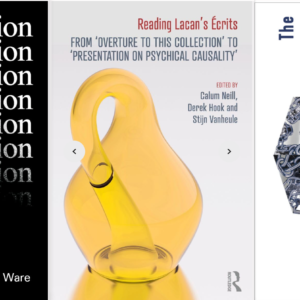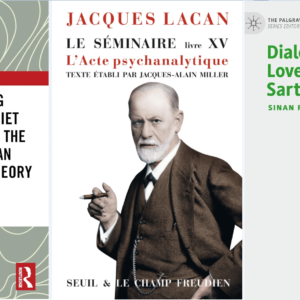News – March 2014
Periodically, Freud comes back into fashion as a new wave of thinkers from a variety of disparate disciplines ‘rediscover’ and apply his work to their respective fields. And so it was that Discover magazine decided to devote its latest issue, released in March, to ‘The Second Coming of Sigmund Freud’. There are no great surprises here, and it is as popular to resurrect Freud as it is to re-bury him (see for example this, from Le Nouvel Observateur in 2012). This month, the perspective is from the now-relatively-established world of neuropsychoanalysis. Having begun his career on the cutting edge of neuroscience in Europe in the nineteenth century, the recognition Freud is now receiving from practitioners in this discipline could be seen as representing the closing of a circle.
The article heavily references the work of Mark Solms, co-chair of the International Neuropsychoanalysis Society, who more than anyone else has been responsible for the dissemination of psychoanalytic ideas in this field over the last twenty years, particularly in the area of dreams. Solms’ work here, as more generally, reflects an appreciation of the interplay between neurobiology and subjective experience. As he puts it, “What neuropsychoanalysis is all about is this: How does the actual stuff of being a person relate to the tissue and physiology and anatomy and chemistry of the brain?” Or, what does it mean to be a mind that thinks?
Even if it’s a good idea to be skeptical of the value of neuropsychoanalysis, the article is nevertheless worth reading as an barometer of the perception of Freud’s work in contemporary culture, and as an indicator of a renewed interest in psychoanalysis in fields most often thought of as opposed to it. The article itself is behind a paywall but a preview can be read here. Reading on a desktop device seems to require you to subscribe to the magazine in order to access it, but on a tablet this edition alone can be bought for £3.99.
March saw the publication of Stijn Vanheule’s new book – Diagnosis and the DSM: A Critical Review – which tackles the DSM-V from a Lacanian perspective. Vanheule is assistant professor in the Department of Psychoanalysis and Clinical Consulting at Ghent University (here’s his site) and a Lacanian psychoanalyst, but phenomenological psychiatry also forms part of his frame of reference in this book. Vanheule has also co-authored a paper in the journal BMC Family Practice titled ‘A Lacanian view on Balint group meetings: a qualitative analysis of two case presentations’, which was published in March. It can be found open access on the journal’s site here.
An English translation of Lacan’s Seminar X on Anxiety is due to be published by Polity press in the US on 7th April. Though the publication date has been moved back a couple of times, it’s worth pre-ordering or checking back at this link ahead of its release. Special thanks to Adrian Price for the tip-off on this news.
Zero Books published the first volume of the EDA Collective’s work, Why are Animals Funny? in March. Everyday Analysis is a great site that many Lacanians will already be familiar with for its entertaining but rigorous use of Lacanian ideas – amongst others – to analyse everyday life. The book is well worth checking out.
A video of Jacques B. Siboni and John Gasperoni’s recent lecture at the Wright Institute in California on the topic of Lacan’s four discourses and the ethics of psychoanalysis can now be found on YouTube. Siboni is one of the architects of the valuable and engrossing Lutecium Cooperative, a great resource for those looking for primary source Lacanian material:
.
As previously reported, Miquel Bassol gave a paper on the ‘Paradoxes of Transference’ at February’s Clinical Study Days in New York City. That paper is now available online courtesy of LC Express, the publication of the group Lacanian Compass. Volume 2, issue 8 was circulated via email in March and although yet to appear online you can find the text of Bassol’s paper here and previous editions of the journal on the group’s site here.
Affiliated Psychoanalytic Workgroups is hosting its 12th annual conference with the group Lacan Toronto, taking place in the city on 17th-19th October this year. In line with the recent publication of Lacan’s sixth seminar Desire and Its Interpretation in French (translation coming soon in English) the topic of the conference is desire.
On 10th May the Freud Museum in London will host a half-day seminar with Lacanian analyst Colette Soler from Paris. Soler will be in discussion with members of the Centre for Freudian Analysis and Research, the group responsible for organising the publication in English of her book Lacan: The Unconscious Reinvented (scheduled for June). This is also the title for the event. Tickets are available at the Freud Museum’s site.
As reported last month, following the publication of Elisabeth Roudinesco’s new book on Lacan the author will be in London on Thursday 24th April to give a talk at Tate Modern, chaired by Lisa Appignanesi. The title of the talk is ‘Lacan and the Feminine’, with Appignanesi a fitting discussant given her own work on women in psychoanalysis. Tickets can be purchased at Tate Modern’s site here. There is likely to be a podcast available later for those who can’t attend in person.
Appignanesi will also be at the Freud Museum herself in May to discuss her latest work, Trials of Passion, in conversation with the Lacanian psychoanalyst and Pro-Vice Chancellor of Brunel University, Dany Nobus. Tickets to the event can be booked here.
Two major Lacanian conferences are on the horizon. As April will see the IXth Congress of the World Association of Psychoanalysis gathering in Paris, the Congress’s site continues to publish a number of short papers in French, Spanish and Portuguese on its topic, a Real for the 21st Century. They can be found here. In English, followers can read the bulletin What’s Up, editions 14 and 15 of which were published in March.
Meanwhile, the New Lacanian School’s output in preparation for its next Congress, which takes place in Ghent in May on the theme of ‘What cannot be said’, is equally vast. A number of publications of note appeared in March. Editions 6 and 7 of the ‘Papers’ of the NLS in preparation for the Congress were circulated via email, although they have yet to appear online. Check the links above or the NLS’s Messanger here where they should be shortly.
A number of Lacanian events have been documented by attendees who have summarised the discussions for the benefit of those not able to attend. Janet Hanley has kindly put together a report on the Knottings Seminar held in January by the London Society of the New Lacanian School which can be read here. The event included speakers from the UK, Belgium and Israel who presented instances from their clinical practice which brought to life some of the elements of Lacan’s Seminar VI (recent publication of which in an authorised French version is forming the focal point for much of the work of the various schools of the NLS at present.)
French speakers may also be interested in three summaries of recent Lacanian events held in Europe. Firstly, an account of the second ‘Saturday of the NLS’ meeting which also took place in January organised by the Belgian division of the NLS, Kring. Abe Geldhof has helpfully written a summary available on the NLS’s site here. Secondly, Dominique Martin has put together a report on the seminar of 8th March organised by ASREEP, the Swiss affiliate of the NLS, on the topic of the Reals (plural) here. Finally, Thanos Xafenias has penned this report on the two-day seminar in Thessaloniki, Greece, which marked the annual seminar of the Hellenic Society of the NLS. Topics discussed included the end of a Lacanian psychoanalysis and clinical case presentations on psychosis and a child analysis.
Laure Naveau’s short paper, The Choice of Words, was published in English on the blog of the NLS Congress. As reported in previous News updates, the blog includes a number of texts which provide preparatory reading for those attending the Congress or who are interested in following the discussions currently being had in the Lacanian community around the New Lacanian School. Naveau was also the guest speaker at the Irish Circle of the Lacanian Orientation’s seminar on 8th February where she spoke about ‘A clinic of love disorder’, a report of which can be found here.
French speakers may also be interested in the output of Radio Lacan in March, in particular the podcasts of the recent ‘Lacan in Beijing’ meetings organised by the Ecole de la cause freudienne in Paris. The speakers, including four Chinese translators who are studying at the Department of Psychoanalysis, University of Paris VIII, discuss the work of translating Lacan, and the reception of Lacan in China.
Finally, Spanish speakers in Amsterdam may be interested to know about the third in a series of four seminars coming up on 5th April on ‘Anxiety and Symptom’. Organised by Université populaire Jacques Lacan, this third installment will be on the topic ‘From extraordinary psychosis to ordinary psychosis’. Full details are here.
Got news? Get in touch.




Leave a Reply